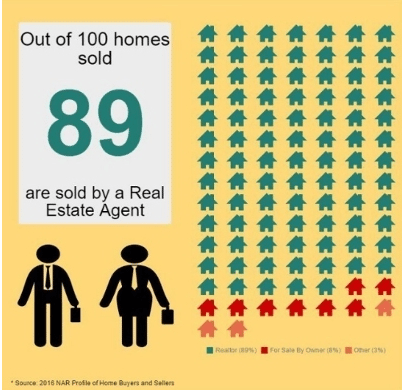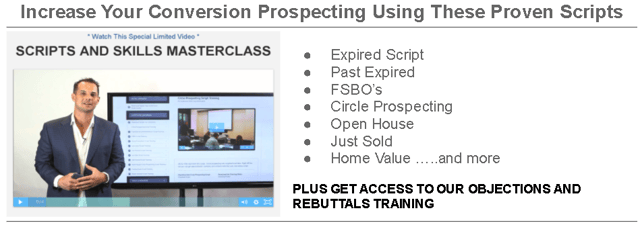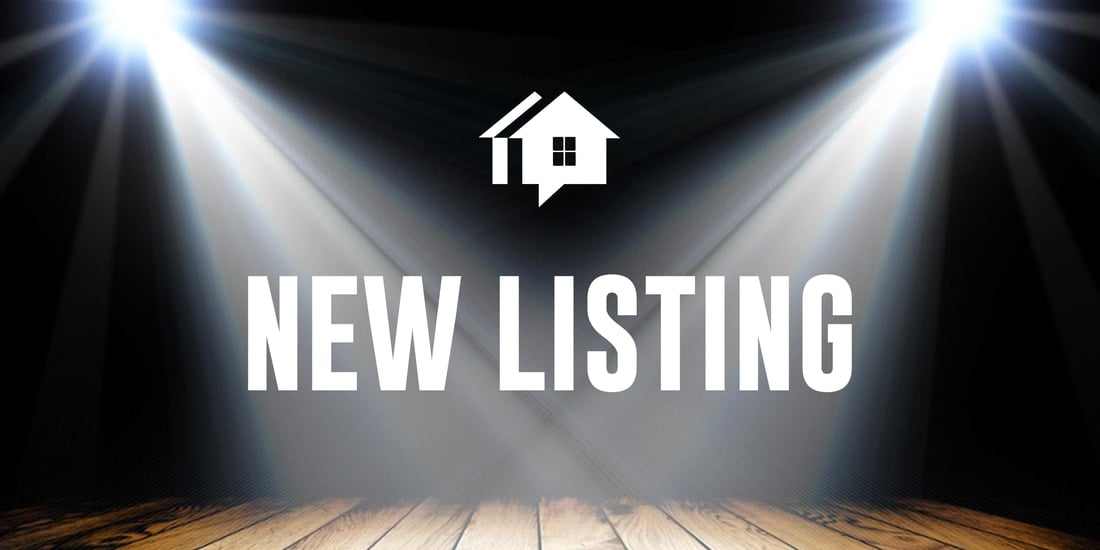At one point or another in your efforts to get listings you’ve likely run into sellers who are a tough sell - they definitely seem interested, but they just aren’t willing to sign the listing agreement.
It happens no matter how good of a salesperson you are.
However, if you want listings and don’t want to have to chauffeur buyers around for the rest of your real estate career -- you must be able to understand why sellers “waffle” and turn their seesawing into a signature.
When you can do that with consistency and ease...you’ll have sellers eating out of the palm of your hand.
Important when handling objections
An important thing to not here is that no matter what objection you get in trying to close a sale, you MUST isolate the objection and confirm that it is the only thing preventing you from doing business with your prospect.
A simple way to do this is by saying: “Is X the only concern you have in deciding to working with me to get your home sold?”
If you get a “Yes”, then handle that objection, get on your horse and ride.
If you get a “No”, see what other objections the seller has, identify all of them and then handle each one of them separately.
You’ll get through a lot more objections that way and end up with the nod in your favor more often than not
Here’s What to Say When Sellers Delay the Sale
Following are three reasons customers might delay the deal.
1. It’s all about the Benjamin’s
When it comes to listing their home for sale, some sellers might uncomfortable talking about money, but with a little prompting, they might open up. Usually, it’s either about the price of the home or your commission.
Sometimes it’s about both.

Copyright: <a href='https://www.123rf.com/profile_AlexKalina'>AlexKalina / 123RF Stock Photo</a>
If a seller is balking at putting his/her name on the dotted line for either reason, here’s what you can say to get them to take action and hire you:
- Price of the home or your commission
“Mr./Mrs. Seller, how did you arrive at that price?” Let them answer without interrupting them. VERY IMPORTANT
Once you hear what they have to say (and by the way your answer will always be the same), pull out any proof of what happened in your market when homes in their price range didn’t sell or sold for less money when it was priced too high or had a cut-rate fee.
Before you give your own objection to this, do the research.
Even in a smoking-hot market, homes that are overpriced and have lower commissions don’t sell or sell for less money.
Once you have the proof, show it to your seller and say the following:
Price of Home Objection: “Mr./Mrs. Seller, you can see here what happens to a home when it’s not priced with what the market will bear. Even in a super hot market, homes that aren’t priced properly will sit on the market and eventually sell for less money.
The average overpriced home stays on the market X days more and gets X% less of its asking price. So, not only do you get less of your equity, you also pay more in mortgage, interest and taxes waiting for your home to sell.
Can you see that here?” Let them answer.
“May I make a suggestion?” Let them answer. “Let’s price the home competitively at $X and not take a penny less. As you well know, it’s easier to negotiate 10 low offers than it is to negotiate an offer that you don’t get. I’m confident at this price, we’ll get a strong offer and we may be able to even drive up the price through a competitive bidding situation. Will that work for you?”
Once you gain their agreement, move on to the paperwork.
Commission Objection: Operating again from the “show me is better than tell me” position, you can use a similar script and just change up the verbiage.
“Mr./Mrs. Seller, you can see here what happens to a home when a lower commission is offered on the MLS. 71% of homes listed for sale will sell through a co-op agent. One of the main criteria for top-agents who represent a lot of buyers and select homes for their buyers is the commission that’s being paid out. If it’s not competitive, then they won’t even show the home. Even in a super hot market, homes that don’t offer a competitive fee will sit on the market and eventually sell for less money.
The average home that offers a lower fee stays on the market X days more and gets X% less of its asking price. So, not only do you get less of your equity, you also pay more in mortgage, interest and taxes waiting for your home to sell.
Can you see that here?” Let them answer.
“May I make a suggestion?” Let them answer. “Let’s offer a fair commission to co-op agents and attract solid offers from buyers who are ready, willing and able to buy your home because a good agent has prepared them to do so.”
If they are amenable to this, then move forward with the paperwork.
If they are still stalling, offer a price guarantee on the home and only reduce your fee by a fraction of the total amount should the home not sell at that price.
If that doesn’t work, reduce your fee by a small fraction of the total amount. There’s no need to drop it by a point or half a point right out of the gate.
Remember, some sellers are testing you to see if you’ll reduce your fee without a fight.
Your goal is to never do that.
2. Talking with someone else
Sometimes they another agent lurking in the shadows.
And because of this, a seller will want to delay the sale in order to talk to this person to give them a chance at securing the listing.
This is a tough one because it’s highly likely that the seller is going to use an agent to get the home sold - there’s just no guarantee that they’re going to use you.

It’s your goal to get that person to want to work with you without needing to meet with these other people.
Once - and only once - you’ve demonstrated a tremendous amount of value (including using some great testimonials in your presentation) you can say this upon hearing the “other agent” objection:
“Mr./Mrs. Seller, was there something you were hoping to hear or see tonight that I haven’t shared with you?” Let them answer as you may get the key that opens the door right here. And if you do, tell them/show them what they’re looking for and close for the sale. If the seller doesn’t tip their hand, then continue.
“May I make a suggestion? I believe we’ve started a strong relationship here tonight, would you agree? They’ll likely say yes and you should agree. I want you to feel comfortable that you can hold me accountable for the job of getting your home sold, so I’m going to offer you two guarantees tonight in an effort to earn your business:
First, I’ll offer you a satisfaction guarantee. If you’re not completely satisfied with the job I’m doing, you simply need to submit an email to me within 72 hours of wanting to cancel with what you’re dissatisfied with and give me a chance to solve the problem. If I can’t do that, you can cancel your agreement with me and move on to do what’s best for your and your family.
Second, I’m going to offer you a price guarantee. If I can’t sell your home for $X, then, I’ll reduce my fee by X. That way, you’ll know that I’m working hard everyday to help you get your home sold for top dollar and in a time frame that works best for you.
Based upon this, are you okay with letting me get your home on the market tonight?”
Executed properly, you should be able to get sellers to commit to work with you and sign the listing agreement at your presentation.
3. We want to wait a little longer
This one can be an especially tough one because you often have to go fishing for the answer because there’s so many reasons that they may want to delay the sale (many of which may just come from uncertainty)

Copyright: <a href='https://www.123rf.com/profile_mike301'>mike301 / 123RF Stock Photo</a>
The simplest thing to do here is to ask the person what they want to wait for and then solve the problem. You may need to give them suggestions in order to get them to “spill the beans”:
“I can appreciate that you’d like to wait. Selling your home is a big decision. Let me ask, what is causing you to want to wait? Is it:
- The price of your home
- The commission
- Me
- The wrong time
- Work you have to do n the home
- That you need to save more money
- Can’t get approved for a loan to buy a home”
Whatever the issue is, you must first identify what the real problem is and then handle it.
This may seem like an oversimplification of the process, but it’s one that most salespeople often avoid engaging in for fear of the answer and potentially not getting the business.
Ideally, there are lots of objections that can come up in a sale. The better job you do in building rapport with your prospect and in demonstrating value to them, the less likely it is that objections will come up.
The important thing to remember is that no matter what comes up, you must face objections head on and handle them like a seasoned pro in order to get your seller prospects to sign on the dotted line.





.jpg)










